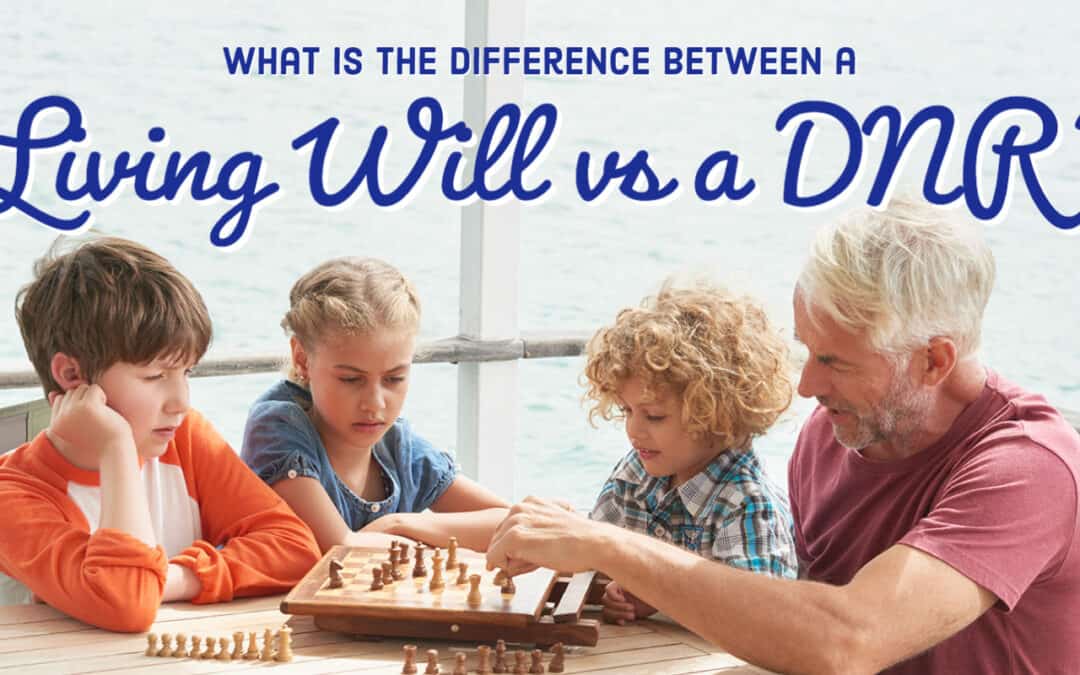It is not enjoyable to think about what would happen if a medical event made you unable to make decisions for yourself. However, facing unexpected trauma or illness at some point during your life is an eventuality. You may prepare by drawing up “Advance Directives” with your attorney. Advance directives let doctors and your loved ones know about your medical treatment wishes. Living wills and DNR (Do Not Resuscitate) orders are examples of advance directives. Let’s look at the difference between a living will vs. a DNR order.
Medical Interventions
Legal documents act as inviolable assertions of your desires concerning medical treatments. Anyone, young or old, facing a severe trauma or illness needs these documents as they enter hospital doors. Without them, you could face all kinds of medical interventions that you would not agree to. A Living Will includes your advance directives, including a DNR.
Because trauma doctors in the hospital have the objective of keeping you alive, they may not consider what lengths you would go to to stay alive. You may wish for them to let you die. However, their concern is using whatever means necessary to keep you breathing and your heart beating.
Even doctors and nurses know that keeping someone alive may not hold the best outcome in many cases. However, they cannot choose to refuse you any treatment that could reasonably keep you alive. If they refuse you treatment based on their own beliefs instead of hospital guidelines, they could lose their job.
If you prefer to refuse any medical treatments for emergencies, your advance directives should be top of mind. With Advance Directives, you have the security of knowing what hospital personnel may do. A Living Will may include:
- DNR (Do not resuscitate)
- Blood transfusion requests
- Dialysis refusal
- Intubation unacceptable
- Respirators or Aspirators not allowed
- Types of unacceptable surgery decisions
- Artificial hydration or nutrition
- Induced Coma refusal
- Organ donation preferences
- Pain relief preferences
Some individuals prefer to use every medical intervention possible to prolong their life while others would rather pass away than go through seemingly unending medical procedures. Every individual has their preferences. That is why it’s crucial to write your living will.
Living Will vs DNR
A Living Will gives you a voice when you no longer have one. If you face terminal illness, physical trauma, or unconsciousness, your advance directives written in your Living Will give the doctors direction. Before writing a Living Will, it is crucial to ask yourself these questions from the Mayo Clinic:
- How important is it for you to be independent and self-sufficient?
- What circumstances might make you feel like your life is not worth living?
- Would you want treatment to extend your life in any situation? All situations?
- Would you want treatment only if a cure is possible?
A do-not-resuscitate order, or DNR order, is a medical order written by a doctor. It instructs health care providers not to do cardiopulmonary resuscitation (CPR) if a patient’s breathing stops or if their heart stops beating. In NC, you work with your physician to draw up a Medical Order for Scope of Treatment (MOST) that allows you or your Health Care Agent to layout your medical treatment directives and end-of-life care instructions when faced with a life-threatening medical condition.
Who Refuses Medical Treatment?
According to The Journal of Trauma and Acute Care Surgery, “Older trauma patients have significantly higher reported mortality rates than do younger patients with similar injury severity scores (ISS) [2,3].” In other words, if you are an older patient who faces a medical event, your pre-existing health issues may contribute to poor quality of life such as paralyzation, extensive surgeries or physical therapy, daily chronic pain, etc. Because many older individuals do not want to prolong their life, they choose to limit the medical interventions they will accept.
Decisions by family members and loved ones often determine your fate unless you’ve prepared with a Living Will. If you have a valid DNR in your chart, the doctors may not perform cardiovascular resuscitation on you. This choice may allow you to pass away peacefully while unconscious rather than suffering for years.
We Can Help
If you’d like to protect your healthcare future or prevent your family’s worrying about what to do in an emergency, contact us at Cape Fear Law. We work within your values and ethical considerations to draw up a Living Will with your advance directives such as a DNR. We understand that some individuals prefer to obtain a DNR from their doctor while others may choose to fight for life as long as medical science makes it possible. You decide your future when you make end-of-life plans. And after all, it is your life and your decision to make.
Get in touch with us today and see how we can help you secure peace of mind for your future and that of your loved ones.
Footnotes:

